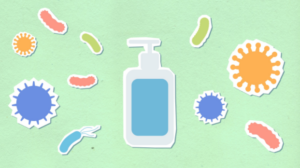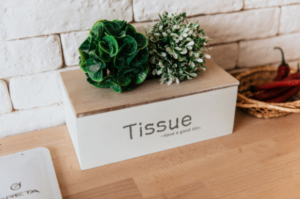
Millions of Americans wear corrective eyeglasses and yet many of them have no idea how to clean them. In fact, most people use cleaning methods that could actually be causing damage to their eyeglasses and lenses.
Cleaning eyeglasses properly can bring many benefits to people that wear them on a regular basis. Doing so can protect your vision and reduce the presence of potentially harmful bacteria around your eyes and nose.
If you wear corrective glasses, then you know how quickly lenses can attract dirt and grime that obstruct vision. Natural oils from our bodies, make-up, and hair sprays are just a few of the things that can cause build-up. Dirty glasses can definitely be frustrating to the wearer and also cause difficulty in focusing properly. If glasses aren’t cleaned well or frequently, it can lead to an increase in headaches and strained eyes. Grimey eyeglasses can also lead to bacteria build-up that can cause staph infections.
For these reasons, it’s important to clean your glasses on a regular basis. Lenses can be quickly cleaned on a daily basis and frames can be cleaned every week or so. When going about these tasks, it’s important to know how to clean the different parts of your glasses properly. There are also certain things to avoid when cleaning.
We wanted to highlight some great ways to clean your eyeglasses to make sure your vision is as good as can be. Keep reading to learn more!
Cleaning Lenses the Right Way

Before you start cleaning your glasses, it’s a good idea to wash your own hands. This significantly cuts down on the amount of dirt, grease, and grime that can get transferred to your glasses during the cleaning process.
Once your hands are clean, turn on your faucet so it releases a gentle stream of warm water. Make sure this water is warm as hot water can damage your lenses, protective coatings, and the frame of your glasses. Place your glasses under the running stream and give them a good rinse.
After rinsing with warm water, you can then place a drop of dishwashing liquid on your fingertips and gently lather it onto the lenses of the glasses. Using circular motions, get the soap onto the frames of the glasses and all the way down to the earpiece. A cotton swab can be a great tool for cleaning the nose pad area and tiny crevices around the frame.
Next, place the glasses under the warm running water again and wash away the soap. Give your glasses a quick shake to get rid of any remaining water.
How Not to Clean Your Glasses

Since so many people have no idea what it takes to properly clean their glasses, a number of incorrect and damaging techniques have come about. For example, many people will use their shirts or clothing to wipe off the dirt. Although this may seem harmful, it can potentially scratch your lenses by bringing them in contact with dust particles that may be on your clothes.
Breathing on eyeglasses and then using a tissue or napkin to wipe them clean is another common technique. Doing so can be convenient, but tissues contain rough fibers that can leave behind debris. If you want to clean your glasses in a dry manner, you can do so safely with a microfiber cloth.
Make sure to avoid any cleaners that include ammonia, bleach, vinegar, or window cleaning ingredients. Using these elements can cause significant damage to the protective coating on lenses. People also use their own saliva sometimes, but this is not a very hygienic cleaning method.
Conclusion

Cleaning corrective eyeglasses is so important for maintaining clear vision throughout your day. Knowing how to do so properly can help you avoid scratches to your lenses and unwanted stripping of protective coatings. Clean lenses lead to a reduction in eye strain and headaches that are caused by the presence of grime and grease.
Regular cleanings also stop the build-up of harmful bacteria that can accumulate on the frames of eyeglasses and lenses. Make sure to clean your glasses every day with a little warm water and dish soap. Doing so will bring a lot of benefits to your vision!